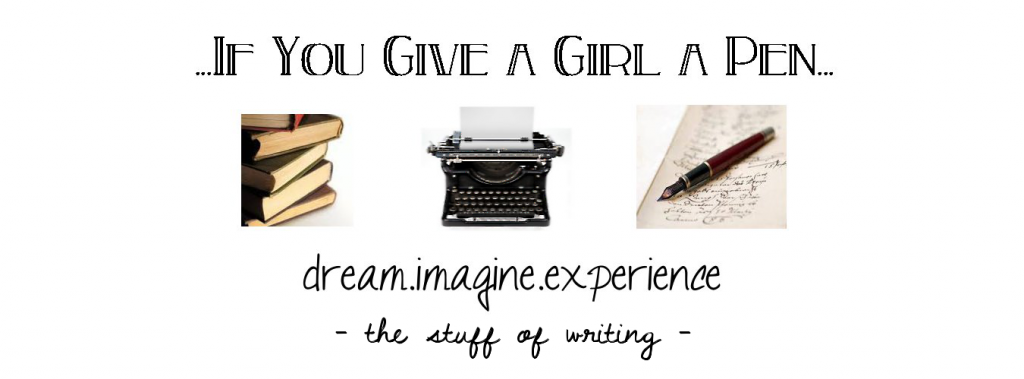Over the past few weeks, I've noticed something odd. You know how there are times in life when you will do virtually anything - anything - NOT to write?
It's the most awful sensation in the world, as some of you can probably relate. When you could be sitting down and getting out a couple thousand words, you're actually lounging on the upstairs couch, perusing Pinterest and reading blogs about who-knows-who from who-knows-where because the thought of putting anything under that optimistic "Chapter 5 {or 2, or 12 or 30}" seems too presumptuous to attempt.
I come to the point here: Has anyone other than my sad, strange little self ever been afraid to write?
It seems ridiculous in a sane and sensible way that a small thing like putting words into a document could somehow affect the equilibra of my emotions, rock my world cockeyed on its axis, and send me into a downward spiral of conflicting moods and raging self-doubt.
I exaggerate like the dickens, but it's partly true. I'm sure I'm not the only one who has ever wondered if the words they're putting down today won't be erased with scorn tomorrow and replaced with new words that will be erased with greater scorn the next.
Frankly, I'm scared to death that what I write today won't be the words that should be written {aka the words I was supposed to write but fell through the cracks in my brain and are forever lost}. Basically, I'm afraid that I'm screwing up the potential of what could be - if that makes any sense at all.
Let's face it: the unwritten word is a daunting thing. While it's still in your head it's an idea, a non-solid fragment with endless possibilities and myriad facets. You can toy with it, twist it, put it in the front or relegate it to the back, use it, toss it, like it or lump it.
Once it's on paper, it mysteriously gains a sense of permanency. You're going with it. This is how your story is taking shape. This is the bend in the road. The buck stops here.
Of course, that's not forever true. You can always erase and start over, but there has got to be a point in time when you stop starting over. When you close it up and say "that's the best I can do". But how do you know? I wonder how an author feels when their book is published - done - and they can't change another thing. Do they pick it up and wonder what they could have made better? Do they read it and say "oh drat, I should have said that" or "I could have said this and it would have sounded better" or do they just hold and it sigh with relief because it is done and they can't change it anymore?
Someday, I want to know what it feels like to hold my own book in my hand and see the cover that houses my words. I want to open it up and see those words on the page. The words that I pored over, agonized over, tripped over, laughed over and cried over. The words that came to me in a flood and seemed to write themselves and the words that I squeezed out of my brain one by one until they marched in a sentence across the page.
I suppose every author has the floods and the squeezes. And I expect that one doesn't come without the other. Not every word that comes out will be perfect. And not every word that isn't perfect is going to be changed. Not every twist will be discovered and not every path will be explored. Every book ever published has this sort of untapped potential. Some fork in the road where a choice was made. A twist used and a twist discarded. And that's what a writer does. A writer chooses the road and paves it how they wish. We're the ones who wade through the muck and mire of has-beens and could-bes and pick out the path that doesn't dump you right back into the swamp. A reader doesn't like ending up back in the swamp and will generally tell you such in no uncertain terms. Thus, it's a writer's job to give the reader a story - not the thousand rabbit trails they could have written.
What they don't know, as the abysmally mistaken {and occasionally appropriate} saying goes, won't hurt them.
And the road you decide not to take, as the saying does not continue, they won't miss - unless it's something necessary, like introducing the main character.
Till next time!
It's the most awful sensation in the world, as some of you can probably relate. When you could be sitting down and getting out a couple thousand words, you're actually lounging on the upstairs couch, perusing Pinterest and reading blogs about who-knows-who from who-knows-where because the thought of putting anything under that optimistic "Chapter 5 {or 2, or 12 or 30}" seems too presumptuous to attempt.
I come to the point here: Has anyone other than my sad, strange little self ever been afraid to write?
It seems ridiculous in a sane and sensible way that a small thing like putting words into a document could somehow affect the equilibra of my emotions, rock my world cockeyed on its axis, and send me into a downward spiral of conflicting moods and raging self-doubt.
I exaggerate like the dickens, but it's partly true. I'm sure I'm not the only one who has ever wondered if the words they're putting down today won't be erased with scorn tomorrow and replaced with new words that will be erased with greater scorn the next.
Frankly, I'm scared to death that what I write today won't be the words that should be written {aka the words I was supposed to write but fell through the cracks in my brain and are forever lost}. Basically, I'm afraid that I'm screwing up the potential of what could be - if that makes any sense at all.
Let's face it: the unwritten word is a daunting thing. While it's still in your head it's an idea, a non-solid fragment with endless possibilities and myriad facets. You can toy with it, twist it, put it in the front or relegate it to the back, use it, toss it, like it or lump it.
Once it's on paper, it mysteriously gains a sense of permanency. You're going with it. This is how your story is taking shape. This is the bend in the road. The buck stops here.
Of course, that's not forever true. You can always erase and start over, but there has got to be a point in time when you stop starting over. When you close it up and say "that's the best I can do". But how do you know? I wonder how an author feels when their book is published - done - and they can't change another thing. Do they pick it up and wonder what they could have made better? Do they read it and say "oh drat, I should have said that" or "I could have said this and it would have sounded better" or do they just hold and it sigh with relief because it is done and they can't change it anymore?
Someday, I want to know what it feels like to hold my own book in my hand and see the cover that houses my words. I want to open it up and see those words on the page. The words that I pored over, agonized over, tripped over, laughed over and cried over. The words that came to me in a flood and seemed to write themselves and the words that I squeezed out of my brain one by one until they marched in a sentence across the page.
I suppose every author has the floods and the squeezes. And I expect that one doesn't come without the other. Not every word that comes out will be perfect. And not every word that isn't perfect is going to be changed. Not every twist will be discovered and not every path will be explored. Every book ever published has this sort of untapped potential. Some fork in the road where a choice was made. A twist used and a twist discarded. And that's what a writer does. A writer chooses the road and paves it how they wish. We're the ones who wade through the muck and mire of has-beens and could-bes and pick out the path that doesn't dump you right back into the swamp. A reader doesn't like ending up back in the swamp and will generally tell you such in no uncertain terms. Thus, it's a writer's job to give the reader a story - not the thousand rabbit trails they could have written.
What they don't know, as the abysmally mistaken {and occasionally appropriate} saying goes, won't hurt them.
And the road you decide not to take, as the saying does not continue, they won't miss - unless it's something necessary, like introducing the main character.
Till next time!







